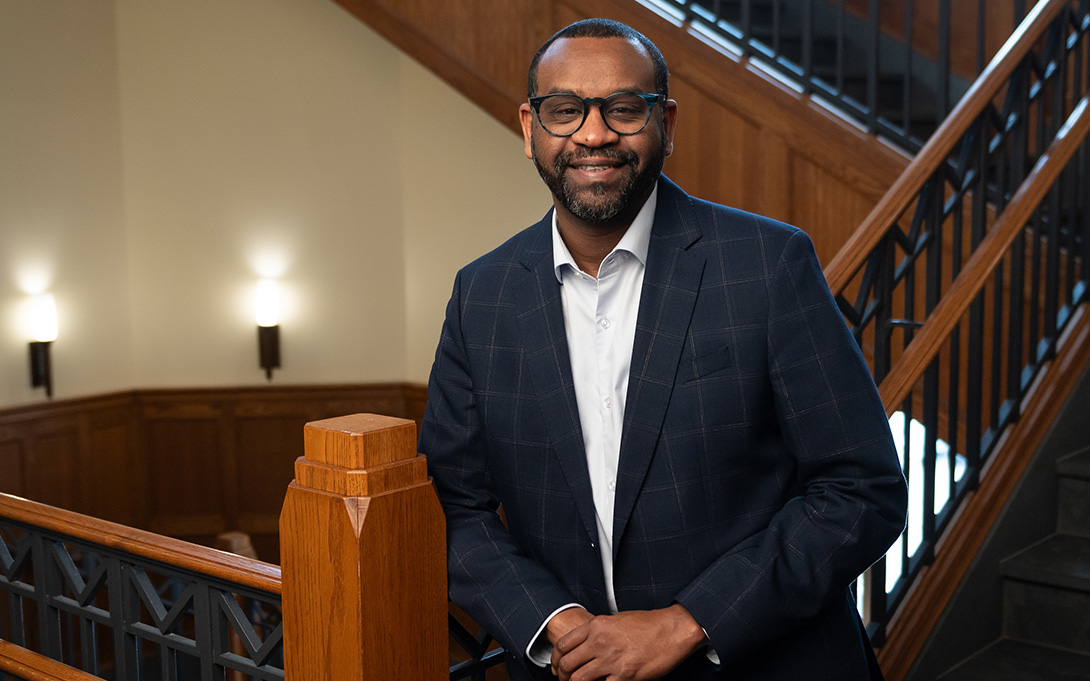
Expert in AI, equity, and science and technology studies joins the faculty
My story has been shaped by many lived experiences at different events and places,” says Yousif Hassan, who, after seeing members of his family safely conveyed from war-torn Khartoum, overland to Egypt, arrived in January in Ann Arbor.
Born in Egypt and raised in Sudan, Hassan came with his family to Toronto in 1999 as a political refugee; his late father, a prominent political journalist, had been harassed for opposing the dictatorship of Omar al-Bashir. He started his career as a software engineer, and his practical experience with artificial intelligence (AI), blockchain, and digital transformation led him to the academic field of science and technology studies. Of his new home, he says, “I like Ann Arbor. It seems very vibrant, and the community is very welcoming here.”
Hassan studies how technology can help local communities around the world—especially those in the Majority World or Global South. For his Ford School début, he is teaching “Race, Technology & Public Policy”. Its message: technology helps populations—if they are allowed input. “I show my students the values and assumptions embedded in technologies,” Hassan says.
“Before we put the next supercomputer in Ghana or Nigeria, we must listen to social movement groups around tech in those countries. What services do their people need? The vision must come from the grassroots.”
For example, values and beliefs that may be considered universal and positive in the West, such as individual freedom, privacy, efficiency, and productivity, are understood differently around the world, and often Western interpretations may mean tech workers in the Global South are exposed to unfair working conditions or suffer negative psychological effects from graphic content that violates cultural norms or religious beliefs.
Hassan and his students also examine attempts to use technology to advance economic development in the Global South. This often fails because technologically “advanced” countries embed colonialist standards in technologies. Currently, for example, there is much talk of AI’s helping international development. But the Global South faces infrastructure challenges and a lack of data and resources, both of which could hinder AI development. “Before we put the next supercomputer in Ghana or Nigeria,” Hassan says, “we must listen to social movement groups around tech in those countries. What services do their people need? The vision must come from the grassroots.” Hassan’s own current research investigates the development of AI in Africa, focusing on data governance and the knowledge production practices of states, scientists, and the tech industry.
Finally, Hassan’s class asks how non-western visions of the future can inform technological development. Afrofuturism—the expression of Black identity and liberated Black futures through creative work and activism— wants to make technology a tool of empowerment and specifically communal development. Hassan’s students must thus think about how to make that technology more equitable.
Our new global citizen is busy with many other projects: a conference about AI in Africa with the U-M African Studies Center; a Ross School symposium on generative AI, business, and law; and a student-led conference on ethics, AI, and the future of work.
Written by David Pratt
More in State & Hill
Below, find the full, formatted spring 2024 edition of State & Hill. Click here to return to the spring 2024 S&H homepage.
More news from the Ford School